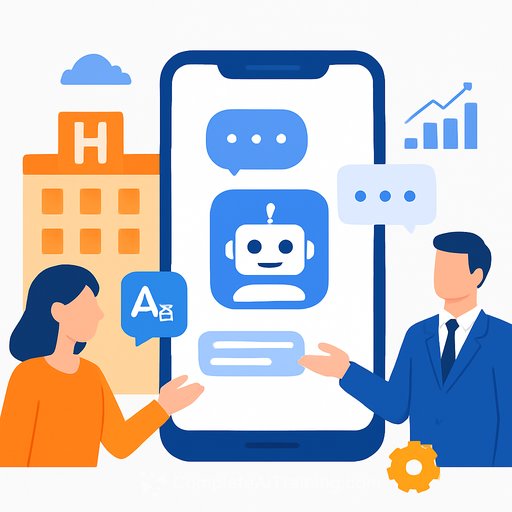New Economic Realities in Customer Service
Tariffs imposed on imports have pushed many brands to rethink their customer service strategies. To manage rising costs, an increasing number of companies are reducing their customer service teams and turning to AI-powered chatbots to handle routine queries.
How Tariffs Are Changing Customer Support
Companies like Beau Ties of Vermont, which import materials from tariffed countries, face significant cost increases. Owner Greg Shugar has responded by raising product prices, trimming non-essential expenses, and cutting customer service staff. Now, AI chatbots handle a growing portion of customer inquiries, easing the strain on the smaller team.
Shugar explains that about 80% of customer service tickets involve repetitive questions, which makes them well-suited for automation. This shift allows companies to maintain service levels while controlling expenses.
AI Chatbots Filling the Gap
Brands such as Outlines and Made In are also adopting AI chatbots to reduce reliance on outsourced call centers. Outlines manages up to 70% of support tickets with AI, saving thousands monthly. Made In plans to test AI for handling transactional customer inquiries, expecting it to cover at least 20% of tickets and reduce seasonal staffing pressure.
These chatbots handle straightforward tasks, freeing human agents to focus on complex issues. This approach is especially useful during peak seasons when the volume of support requests spikes.
Labor Market and Automation Trends
The current economic environment features slower job growth and rising unemployment, factors that make automation more attractive to businesses. Adjusted tariffs continue to add pressure, pushing brands toward AI solutions for customer service.
Lisa Popovici, president of Siena AI, notes increased demand for chatbots as brands look for cost-effective ways to maintain service quality. Major retailers have acknowledged that AI will reduce headcount, but automation can also allow existing staff to handle higher-value tasks.
Real-World Impact on Customer Service Teams
For example, Absolutely Ridiculous, a company producing protective gloves, replaced several support roles with an AI agent. This allowed them to reassign staff to growth-focused roles without hiring externally, effectively managing headcount while expanding operations.
This example shows that AI doesn't always mean job loss; it can also shift employees to areas where they add more value.
What This Means for Customer Support Professionals
- Expect automation to handle routine inquiries increasingly, especially repetitive questions.
- Human agents will focus on complex, nuanced customer issues that require empathy and problem-solving.
- Upskilling in AI tools and chatbot management will become valuable skills in customer service roles.
- Companies will seek scalable solutions that balance cost savings with maintaining customer satisfaction.
For frontline customer support professionals, understanding AI chatbots and how to work alongside them will be essential. Training on AI-driven tools can improve efficiency and open opportunities for higher-level responsibilities.
If you want to explore courses that help you adapt to AI in customer service, check out Complete AI Training’s courses for customer support roles.
Your membership also unlocks:





